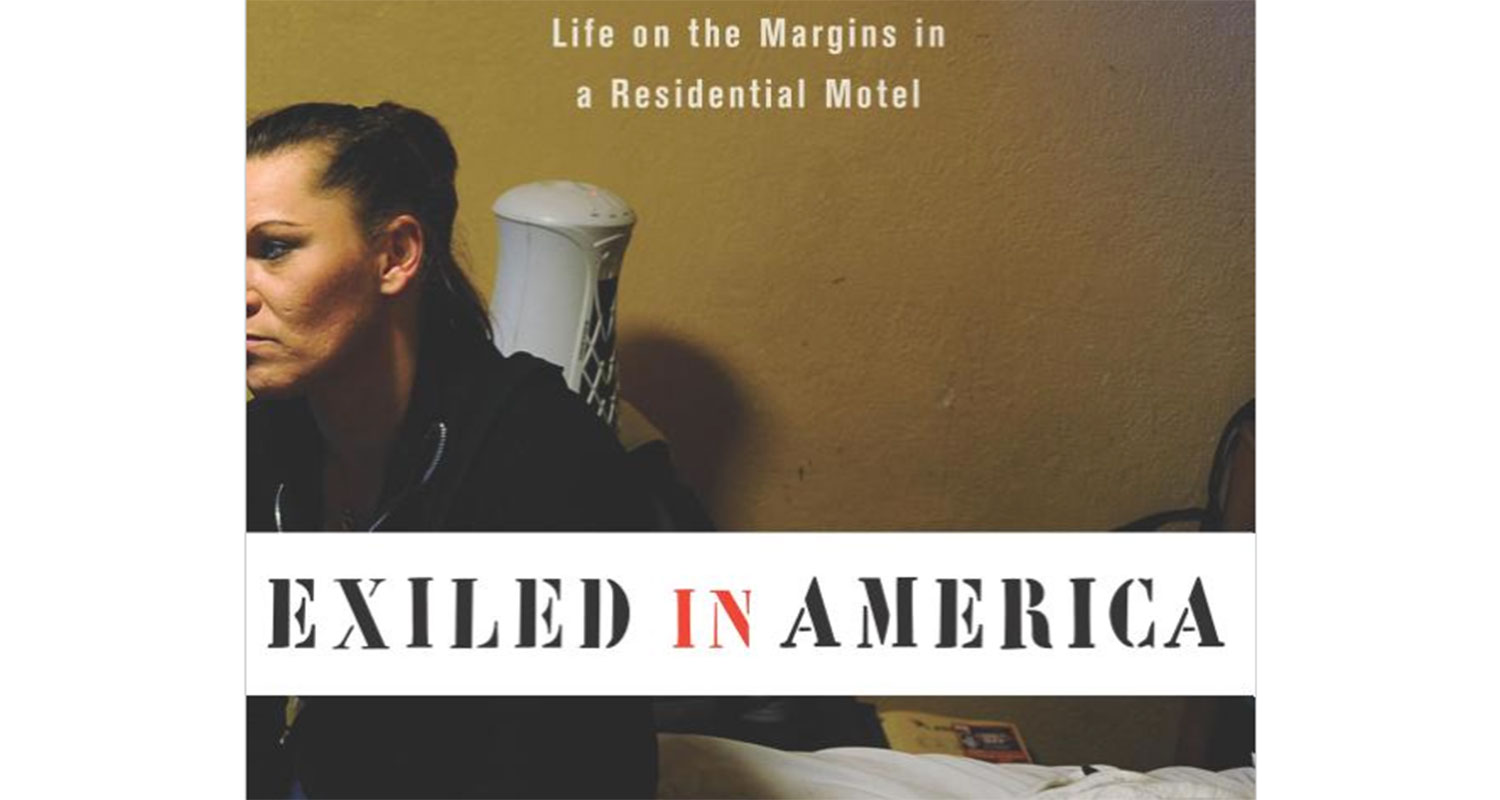 Many people take their work home, but few turn work into their home. Christopher Dum, Ph.D., assistant sociology professor from ¤Öêüë½ãs College of Arts and Sciences, did just that. For a year, Dum moved into a residential motel to better understand the dangerous living conditions and vulnerable residents who have nowhere else to go.
Many people take their work home, but few turn work into their home. Christopher Dum, Ph.D., assistant sociology professor from ¤Öêüë½ãs College of Arts and Sciences, did just that. For a year, Dum moved into a residential motel to better understand the dangerous living conditions and vulnerable residents who have nowhere else to go.
Dum compiled their stories into a book
The book documents the lives of struggling addicts, registered sex offenders, released prisoners and the recently homeless in order to bring attention to the issues they face.
ãThe goal in writing this was to show people as three dimensional,ã Dum said. ãIn the instant that you start labeling people or start viewing them just as the result of one thing theyãve done or one vice that they might engage in and have a hard time kicking, then it becomes really easy to devalue people and to label them as others and do really horrible things to them.ã
In ãExiled in America,ã where names of people and places are pseudonyms to protect everyoneãs privacy, Dum sheds light on the conditions the ãBoardwalk Motelãsã residents are forced to accept out of desperation. Years before Dum stayed at the motel, the building was audited and code violations such as structural damage, faulty alarm systems, exposed wiring, mold and bug infestation were found in every room. Nothing had changed when Dum arrived in 2012, five years after the inspection. The motel was eventually shut down in 2014 because of code violations.
ãWe need to ask ourselves, what are the minimum standards that we are willing to accept in terms of where people can live,ã Dum said.
He emphasizes this as an ongoing issue that needs to be addressed and points to the recent Oakland warehouse fire that killed 36 people late last year.
ãJust because youãre poor, coming out of prison or need a home, it doesnãt mean that you should accept a dangerous home,ã Dum said. ãI donãt mean that we should give people luxurious apartments or anything like that, but you should live in a place where things work, where things arenãt going to kill you or get you sick. Thatãs just a basic standard of human decency that we should demand for people.ã
Dum recalls the polarity he witnessed within the community between those who were concerned over the residentsã well-being and those who simply didnãt care. While the motel did close down because of code violations, Dum cites a deeper issue.
ãWhat people at the motel saw was a society that didnãt care enough about them to make sure that they get it right,ã Dum said.
Aside from documenting the daily lives of his subjects, Dum also touched on suggestions to improve and make policy changes to address the issues that make people have to move into motels in the first place. Dum hopes ãExiled in Americaã will encourage readers to step out of their comfort zones to engage those who might be different from them.
ãThere are a lot of people in the book who I met who were really caring and really tried to help those around them,ã Dum said. ãI would just hope that if someone picked up this book, they would give it chance, and when I say ãgive it a chanceã I really mean give the people in the book a chance to show who they are.ã
Dum also shared his experiences with

